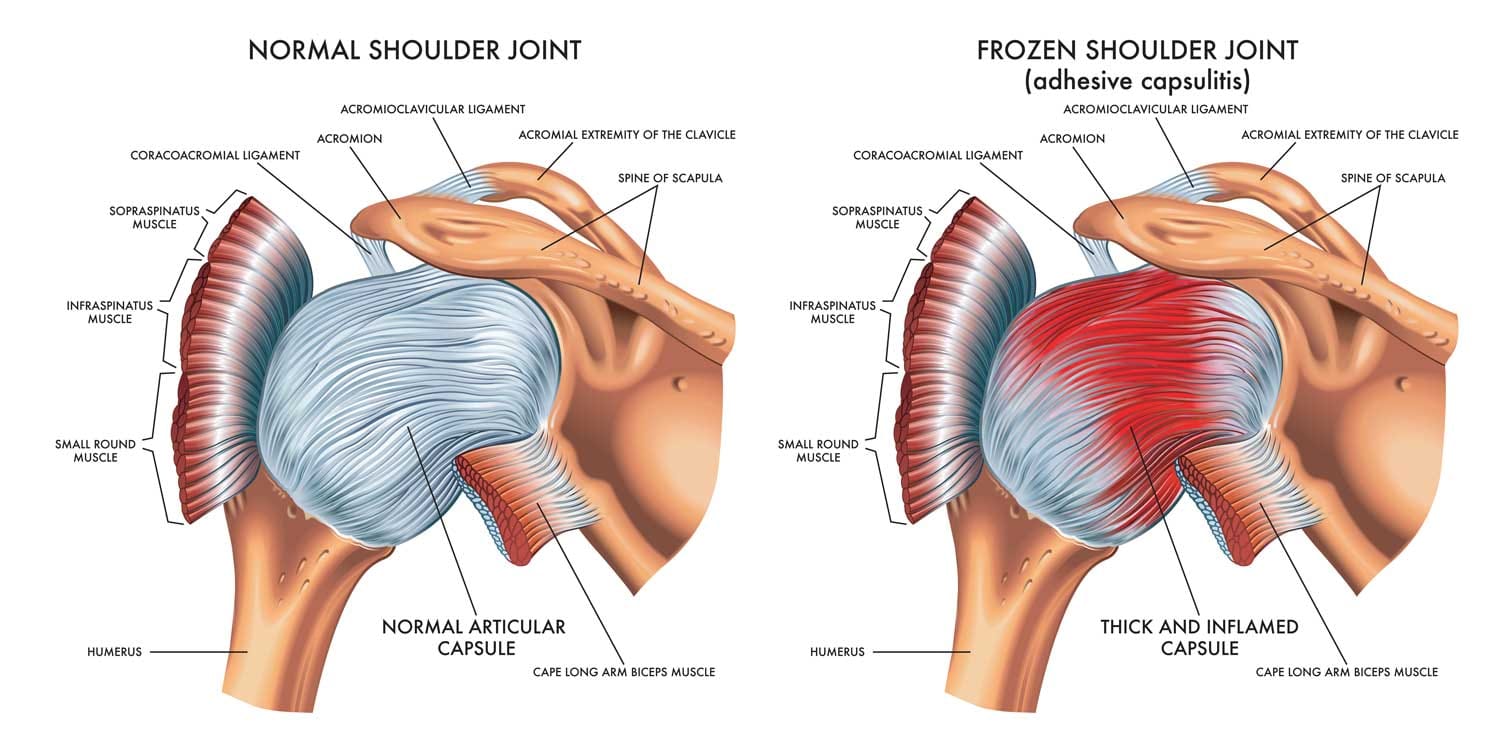Types of Frozen Shoulder
Frozen shoulder generally progresses through three stages, each characterised by different symptoms and degrees of mobility:
During this initial phase, the shoulder becomes increasingly painful, and the range of motion decreases. This stage may last anywhere from 6 weeks to 9 months. As inflammation builds up, everyday movements become more complex and painful.
Pain may diminish during this second phase, but stiffness persists, significantly limiting movement. Individuals often struggle with tasks like reaching behind their back or lifting objects. This stage can last anywhere from 4 to 12 months.
The final stage marks a gradual improvement in shoulder mobility. The range of motion increases, and the pain slowly subsides. Full recovery typically takes six months to two years, although mild stiffness may remain for a more extended period in some cases.

Each stage requires tailored treatment approaches. Pain management is crucial during the freezing stage, whereas the frozen stage focuses more on regaining movement. The thawing stage is a period of active rehabilitation, with a primary focus on restoring mobility and strength.